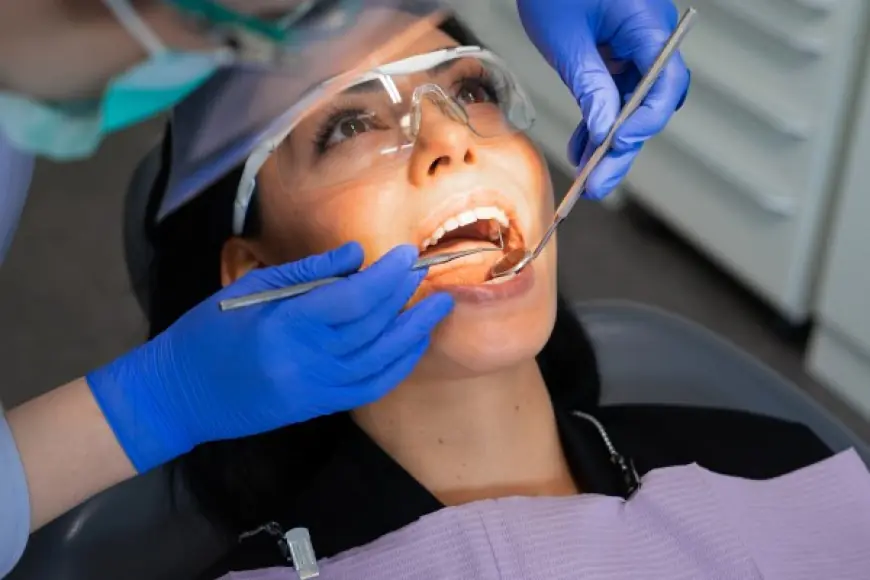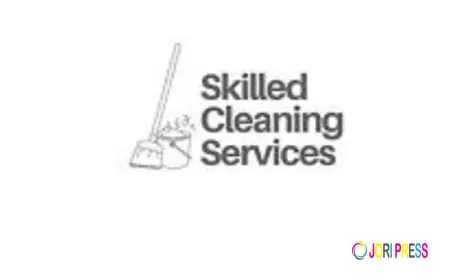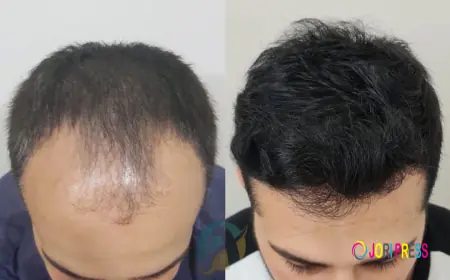Dental Check Up: Why It’s More Than Just a Cleaning
If you’re uncertain about whether it’s time for a dental check-up, this guide explains its importance, what you can expect during the visit, and how it supports your long-term health.

Maintaining good oral health starts with regular dental check up appointments. But for many, this routine visit is either postponed or entirely neglected. In reality, dental exams are critical to preventing costly procedures and maintaining overall wellness. If you're unsure whether you're due for one, this guide covers everything you need to know about the importance of a dental check up, what to expect, and how it contributes to long-term health.
Why Regular Dental Check Ups Matter
Many individuals visit the dentist only when they experience pain or discomfort. However, this reactive approach can result in advanced dental issues that might have been preventable. Here’s why routine dental check up visits should be a priority:
-
Early Detection of Oral Problems: From cavities to gum disease and even oral cancer, regular checkups help identify issues early on.
-
Preventive Care: Cleanings remove plaque and tartar buildup, reducing the risk of tooth decay and gum inflammation.
-
Overall Health Monitoring: Your oral health can reflect and even affect systemic health conditions like diabetes and heart disease.
-
Cost Savings: Preventing problems early on means avoiding expensive procedures like root canals, crowns, or extractions.
What Happens During a Dental Check Up?
A typical dental check up includes two main components: an examination and a professional cleaning. Understanding what happens during your visit can ease anxiety and encourage regular attendance.
1. Visual Examination
The dentist begins with a thorough examination of your mouth. This includes:
-
Inspecting each tooth for signs of decay or wear
-
Checking for signs of gum disease like swelling or bleeding
-
Evaluating existing restorations like fillings or crowns
-
Looking for abnormalities such as lesions, sores, or signs of oral cancer
2. Digital X-Rays
Not all dental issues are visible to the naked eye. X-rays are typically taken to:
-
Detect cavities between teeth
-
Examine the roots and bone structure
-
Identify impacted teeth or infections
3. Professional Cleaning
Dental hygienists perform professional cleanings that go beyond brushing and flossing at home. This process involves:
-
Scaling: Removal of plaque and hardened tartar (calculus)
-
Polishing: Smoothing out the tooth surfaces to prevent future buildup
-
Flossing: Deep cleaning between teeth to ensure no debris remains
4. Personalized Advice
Based on the findings, your dentist may recommend:
-
Oral hygiene tips or new techniques
-
Dietary adjustments
-
Fluoride treatments or sealants
-
A treatment plan for any issues found
How Often Should You Schedule a Dental Check Up?
The general recommendation is every six months. However, the ideal frequency may vary depending on your individual health needs:
-
Low-risk individuals: May only need annual checkups.
-
High-risk patients: Such as those with gum disease, diabetes, or heavy plaque buildup, may benefit from visits every 3–4 months.
Signs You Shouldn’t Delay a Dental Visit
If you notice any of the following symptoms, it's best to schedule a dental check up promptly:
-
Persistent bad breath
-
Swollen or bleeding gums
-
Sensitivity to hot or cold
-
Tooth pain or discomfort
-
Loose teeth
-
Sores that don't heal
Ignoring these symptoms can lead to worsening conditions, including tooth loss or systemic infections.
Pediatric Dental Check Ups
Children should start seeing a dentist as soon as their first tooth appears or by their first birthday. Early visits can:
-
Ensure proper development of teeth and jaw
-
Help children develop healthy oral hygiene habits
-
Address thumb-sucking or pacifier use that might affect alignment
-
Create a positive dental experience to reduce anxiety later in life
Seniors and Dental Check Ups
Aging comes with increased risks for dental issues like:
-
Dry mouth from medications
-
Root decay
-
Tooth loss
-
Ill-fitting dentures or bridges
Seniors should stay consistent with dental visits to maintain functionality, appearance, and comfort in everyday life.
Benefits Beyond Oral Health
You might be surprised to learn how a dental check up impacts your whole body. Poor oral health has been linked to:
-
Heart disease: Gum disease can contribute to cardiovascular problems.
-
Diabetes complications: Infections in the mouth can make it harder to manage blood sugar.
-
Respiratory issues: Bacteria from the mouth can be inhaled into the lungs.
-
Pregnancy complications: Gum disease increases the risk of premature birth and low birth weight.
Taking care of your mouth is an investment in your overall health.
Common Dental Check Up Procedures and Tools
Modern dentistry uses a range of tools and techniques to ensure thorough care:
-
Ultrasonic scalers for effective plaque removal
-
Intraoral cameras to show patients what the dentist sees
-
Laser dentistry for precision treatments
-
Digital records for easy tracking of progress
These advancements have made visits more efficient, comfortable, and informative.
How to Prepare for Your Dental Check Up
A little preparation can go a long way in making your dental visit smooth and beneficial:
-
Brush and floss before your appointment
-
List any concerns or symptoms you’ve noticed
-
Bring a list of medications or recent health diagnoses
-
Arrive early to complete paperwork if needed
-
Be honest about your habits (smoking, diet, flossing frequency)
Being proactive helps your dentist tailor the care to your needs.
How to Choose the Right Dentist
A dental check up is only as good as the provider. When selecting a dental professional, consider:
-
Credentials and experience
-
Patient reviews and testimonials
-
Office cleanliness and technology
-
Availability of emergency care
-
Comfort and communication style
It’s perfectly acceptable to ask questions before becoming a regular patient.
Cost of Dental Check Ups
Prices vary based on location, services included, and insurance coverage. On average, a standard dental check up may cost:
-
Without insurance: $90–$300
-
With insurance: Often covered fully or with a small copay
-
X-rays and additional procedures may increase costs
Investing in preventive care typically costs far less than treating advanced dental issues.
Making Dental Check Ups a Habit
It’s easy to skip appointments when life gets busy, but consistency is key. Here are ways to stay on track:
-
Set calendar reminders every six months
-
Pre-book your next visit before leaving the clinic
-
Educate your family on the importance of oral health
-
Keep dental products visible to encourage daily care
Once it becomes a routine, dental visits won’t feel like a chore but a proactive health step.
FAQs About Dental Check Ups
How long does a dental check up take?
Typically 30 to 60 minutes, depending on whether X-rays or other procedures are required.
Is it painful to get a dental check up?
A routine dental check up is usually painless. Some discomfort may occur if deep cleaning is needed, but it's minimal.
Can I eat before my appointment?
Yes, but brushing your teeth beforehand is recommended for cleanliness and comfort.
What if I haven’t been to the dentist in years?
It’s never too late. Dentists are trained to help without judgment. Just be honest about your history so they can provide the best care.
Are dental check ups safe during pregnancy?
Yes, and they are recommended. Inform your dentist so they can adjust care as needed.
What's Your Reaction?
 Like
0
Like
0
 Dislike
0
Dislike
0
 Love
0
Love
0
 Funny
0
Funny
0
 Angry
0
Angry
0
 Sad
0
Sad
0
 Wow
0
Wow
0


















































